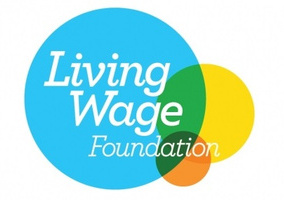Almost one in eight jobs in the charity sector are paid below the real living wage, according to new research.
According to analysis of Office for National Statistics figures by the Living Wage Foundation, rates of low pay in the sector have increased from 10% to 12% this year (286,000 out of 2,364,000 jobs).
This is more than double the proportion of low paid roles in the public sector (5%) but less than in the private sector (20%) and across the UK overall (16%).
There are geographical differences, with 18% of charity employees in the north east of England paid under the real living wage, whereas in the south east this is 9.5%.
Roles that are particularly low paid in the sector include care workers, charity shop staff and entry-level workers.
The real living wage is based on the cost of living and is currently at £12.60 in the UK and £13.85 in London.
It is different to the government’s national living wage rates, which are set at a lower level and mandatory for all employees aged 21 or over.
Charities ‘perpetuating the problems they were set up to solve’
Katherine Chapman, executive director of the Living Wage Foundation, said: “Low pay in the third sector means that many charities may be perpetuating the very problems that they were set up to solve.
“Staff from working class backgrounds continue to be underrepresented in the charity sector, and the real living wage helps to ensure that no one has to turn down a job because they don’t have access to savings or to financial help from family.
“No-one wants their workers to be forced to skip meals. Everyone deserves to be paid enough to afford a decent standard of living.”
Major charities like Oxfam, Shelter, Macmillan and WWF are part of a list of 2,000 charities nationally which are accredited with the Living Wage Foundation.
More than 80 funders are now also accredited living wage funders, and support charities to pay the real living wage through their grantmaking processes.












